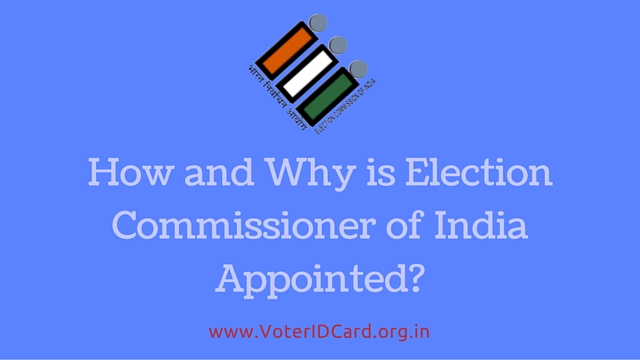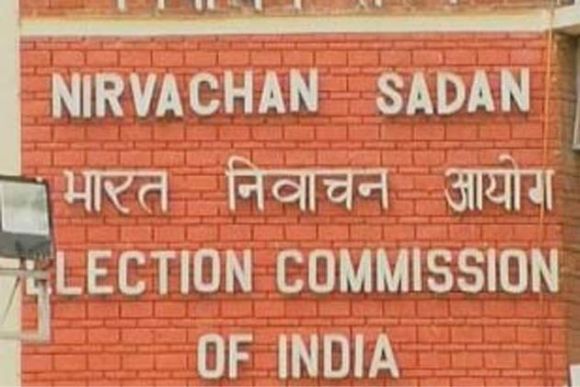One of the most important features of a democratic polity is Elections. India is world’s largest democracy and unlike constitutional monarchy and dictatorship, the head of the state and important offices in the state are not inherited but elected either directly or indirectly by the people of the country. To ensure the observance of impartial and just elections in India, the Election Commission of India was set up which is headed by the Election Commissioner of India. In this article, we will discuss how and why the Election Commissioner of India is appointed.

How and Why is Election Commissioner of India Appointed?
The Chief Election Commissioner heads the Election Commission of India, a body which is part of the basic structure of the Constitution.
Appointment of the Election Commissioner of India
The Election Commissioners of India is usually a member of the Indian Civil Services, specifically from the Indian Administrative Services. They are appointed by the President of India based on the recommendations of the Government of India.
Election Commissioner of India: History
Until 1989, the Commission was a single member body but later two additional Election Commissioners were added. Now, the Election Commission consists of one Chief Election Commissioner and two other Election Commissioners and decisions are taken by a majority. The Current Chief Election Commissioner of India is Nasim Zaidi and the other two election Commissioners are Achal Kumar Jyoti and Om Prakash Rawat. Nasim Zaidi is the 20th Chief Election Commissioner of India.

Election Commissioner of India: Salary, Removal and Tenure
The Chief Election Commissioner of India by the Election Commission (Condition Of Service Of Election Commissions And Transaction Of Business) Act, 1991 will be awarded the same salary as the Chief Justice of the Supreme Court of India.
The Chief Election Commissioner of India can only be removed from office after an impeachment process similar to that of removal of a Chief Justice of India, is initiated in the Parliament. The impeachment process is a lengthy one and so highly unlikely to be initiated hence, ensuring the safety of tenure to the Chief Election Commissioner of India.
The tenure of the Election Commissioner of India is six years or until he turns 65 years of age, whichever is earlier
The Election Commissioner of India enjoys the same perks as the Chief Justice of India. This is only to ensure that his undertakings are just and impartial at all times. To ensure that the Election Commissioner doesn’t fall prey to any malpractices.
Now, that we know everything about the Election Commissioner of India, here is some information about the Election Commission Of India
Election Commission of India: What is it?
Election Commission of India is an autonomous constitutional authority for administering election processes of the Rajya Sabha, Lok Sabha, state legislatures and the offices of the President and Vice-President in India. The Election Commission of India functions under the authority of the Constitution and is also regulated by the Representation of the People Act. The Supreme Court of India has held that where the laws and the Constitution fall short or have insufficient provision to deal witha given situation, the Election Commission has the residuary powers to act in an appropriate manner.

Election Commission of India: What are its Functions?
There are numerous functions of the Election Commission of India, a few of them are stated below:
- It is considered as the guardian of free and fair elections
- A number of parties got registered with the Election Commission to avoid confusion of the administrative machinery and electorate.
- To maintain legal limits of money that a candidate can spend during elections, to avoid a vulgar show of money
Hope this article was helpful and answered all your questions, for more such informative articles, Watch this space for more!
Comment Policy [Please read this before posting your comments]: Only use your real name. Your words are your own, so be nice and helpful if you can. Please, do not share any personal information in your comments. For further details, please read our Comments Policy available over here.